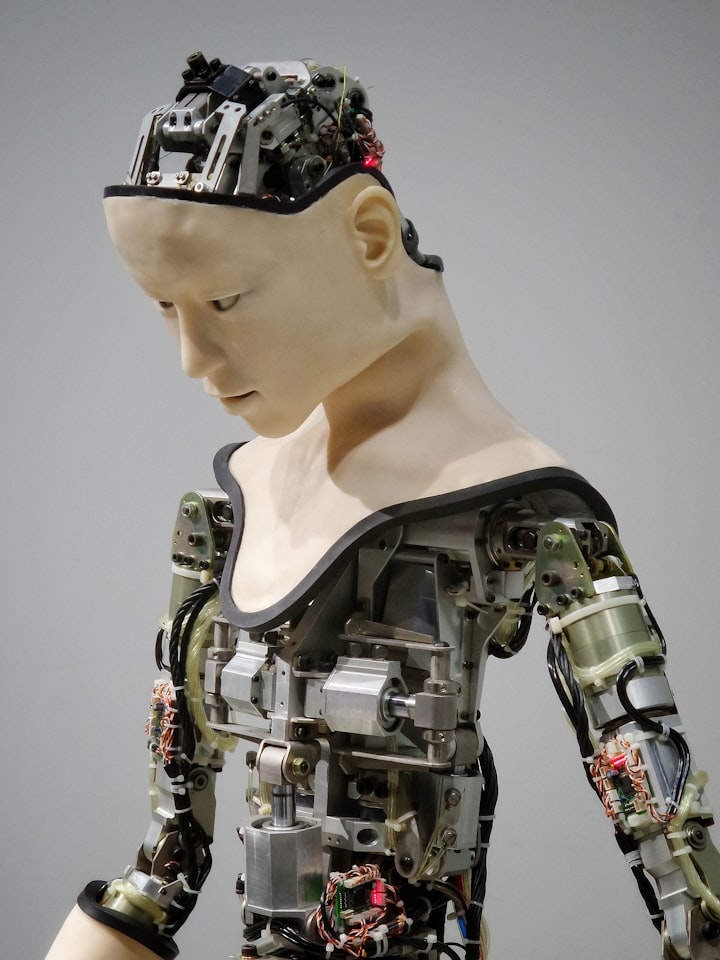The evolution of artificial intelligence (AI) has had a profound impact on society
As AI continues to advance, it brings both opportunities and challenges that require careful consideration.

Artificial intelligence has come a long way since its inception. Initially, AI was limited to performing basic tasks, but with advancements in computational power, algorithms, and data availability, it has rapidly progressed. Machine learning, a subset of AI, enables systems to learn and improve from experience without being explicitly programmed. This breakthrough has fueled the development of AI applications across diverse fields, including healthcare, finance, transportation, and entertainment.
One of the significant impacts of AI on society is automation. AI-powered systems can perform tasks more efficiently and accurately than humans in certain domains. While this can lead to increased productivity and cost savings for businesses, it also raises concerns about job displacement. As AI automation continues to expand, certain occupations might become obsolete, leading to unemployment and socioeconomic challenges. To mitigate this, society needs to focus on upskilling and reskilling the workforce to adapt to the changing demands of the job market. Additionally, promoting entrepreneurship and fostering innovation can create new employment opportunities and drive economic growth.
AI also poses ethical challenges that demand attention. As AI systems become more sophisticated, they increasingly make decisions that impact individuals and society. However, the transparency and interpretability of AI algorithms often raise concerns about bias, privacy, and accountability. Bias in AI algorithms, unintentionally reflecting the biases present in the training data, can result in discriminatory outcomes. Addressing this requires diverse and inclusive datasets and rigorous evaluation of algorithms to ensure fairness. Furthermore, robust regulations and ethical frameworks should be established to guide the development and deployment of AI systems. These frameworks should address issues such as data privacy, algorithmic transparency, and the potential societal impact of AI applications.
Another area where AI has a significant impact is healthcare. AI algorithms can analyze vast amounts of medical data to aid in diagnosis, treatment planning, and drug discovery. This has the potential to revolutionize healthcare delivery and improve patient outcomes. However, concerns about data security, patient privacy, and the ethical use of personal health information need to be addressed. Striking a balance between data accessibility for AI research and protecting patient privacy is crucial. Implementing robust data governance mechanisms, including anonymization techniques and strict access controls, can help address these concerns.
The rise of AI also raises questions about the future of work. While automation may eliminate certain job roles, it also presents opportunities for collaboration between humans and machines. Augmenting human capabilities with AI can lead to more efficient and effective workflows. To ensure a smooth transition, policies should be put in place to support the integration of AI technologies in the workplace. This includes providing education and training programs that equip individuals with the skills needed to work alongside AI systems.
Moreover, the potential for AI to exacerbate existing social inequalities must be acknowledged and addressed. The "digital divide" refers to the gap between those who have access to and can benefit from technology and those who do not. As AI becomes more prevalent, it is crucial to ensure equitable access to AI technologies, particularly in underprivileged communities. Promoting digital literacy, investing in infrastructure, and providing affordable access to AI tools can help bridge this divide.
In conclusion, the evolution of artificial intelligence has had a profound impact on society, presenting both opportunities and challenges. The automation of tasks, ethical considerations, healthcare advancements, and the future of work are among the key areas affected by AI. To navigate this evolving landscape successfully, it is essential to implement measures such as upskilling the workforce, establishing ethical frameworks, ensuring data privacy, and addressing the digital divide. By proactively addressing these issues, we can harness the full potential of AI while ensuring a fair and inclusive future for all.





Comments
There are no comments for this story
Be the first to respond and start the conversation.